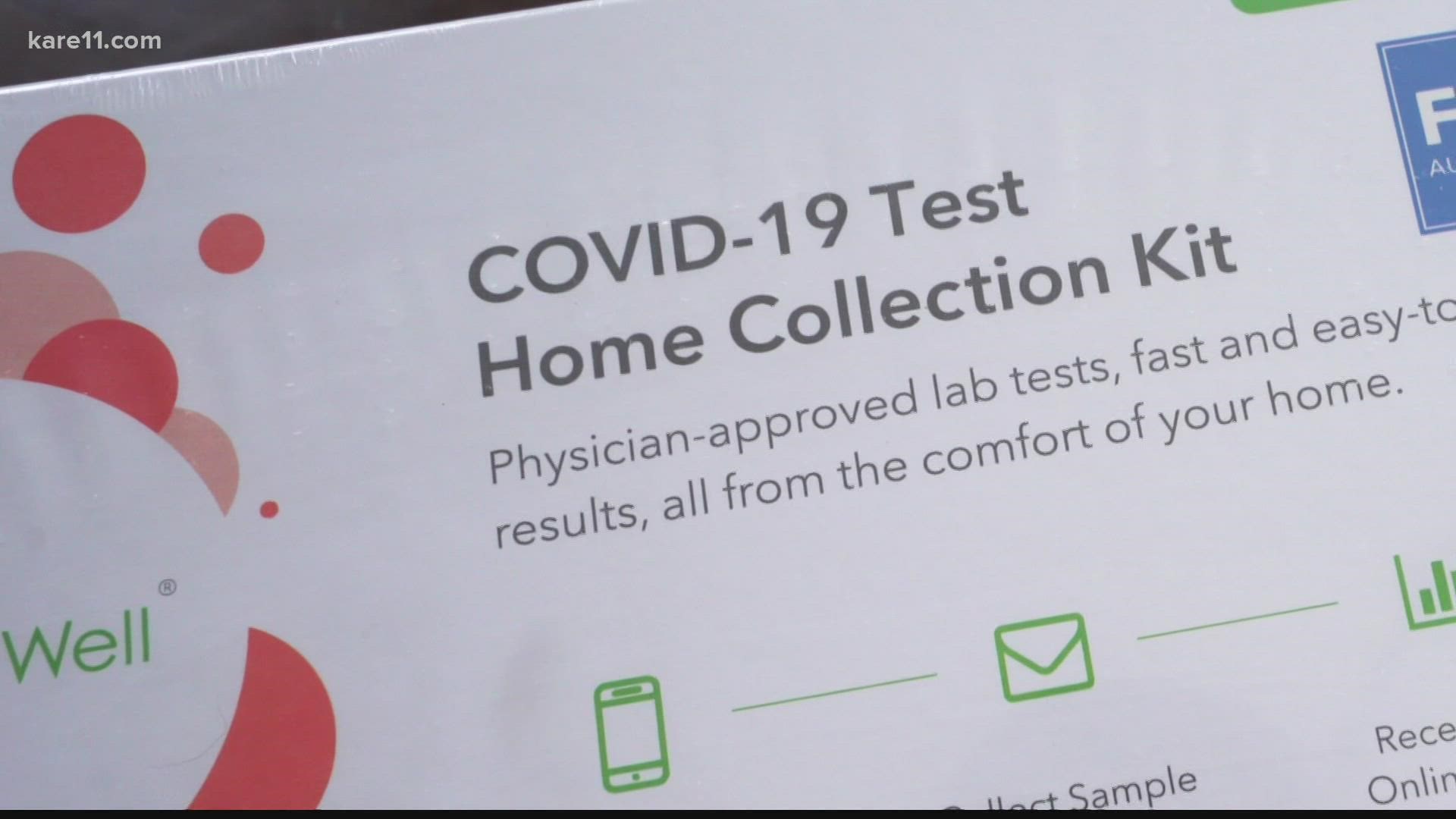MINNEAPOLIS — They're a little hard to find right now, but COVID-19 detection tests are out there.
"There's the PCR test which detect the genetic material of the virus, and there's the rapid antigen test that detects part of the protein of the virus," Amy Karger said.
Karger, the associate professor in the Department of Lab Medicine and Pathology at University of Minnesota Medical School says, yes, while it's true that the PCR test is considered the "gold standard" of testing, there are pros and cons.
First: PCR tests take longer.
"It's really frustrating and challenging when you're sitting there waiting for that result, and those people are sitting there, maybe going about out in the community, and spreading the virus if they don't have their result back," she said.
Cost isn't an issue in Minnesota where PCR saliva tests are subsidized by the government, but over-the-counter rapid tests are generally cheaper at around $25 for two tests.
"Convenience of being able to do the test in your own home, having that result right away, telling that person, 'hey, you need to quarantine immediately,' versus PCR where you're having to wait before you know what that answer is," Karger added.
In terms of rapid antigen tests being "less accurate" — and possibly producing false negatives — Karger said there is a chance.
"But in a lot of situations people are using rapid tests in a case where they wouldn't bother or take that extra step to get that PCR test, so doing testing is better than not doing any testing," she continued. "It's pretty unlikely that people are going to be getting a weekly PCR test for example, but they may be more inclined to do a weekly rapid at-home test because it is so easy and convenient."
Another instance where a rapid test might be more helpful than a PCR test is at the end of a COVID recovery cycle.
"PCR should definitely not be used to determine whether or not you can come out of quarantine because there are people who can stay positive for PCR for days, weeks — even months," Karger explained. "And because that PCR is so sensitive, it can detect dead virus not capable of transmission."
And while there may be newer, more accurate and cheaper tests available on the horizon, Karger says she thinks it's not about coming up with a newer and better.
"I do anticipate, given the push for at-home testing, that there will be new tests coming out, but I frankly don't think we necessarily need more new tests," she said. "I think what we have now is fantastic; we just need to make more of the tests we have, and is to get them out to people and get them on the pharmacy shelves and ramp up production, so people can find them rather than going from pharmacy to pharmacy looking."
Watch more Breaking The News:
Watch all of the latest stories from Breaking The News in our YouTube playlist:

